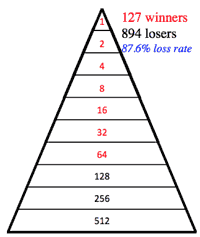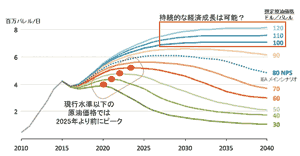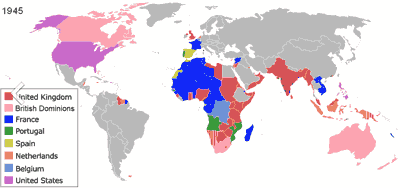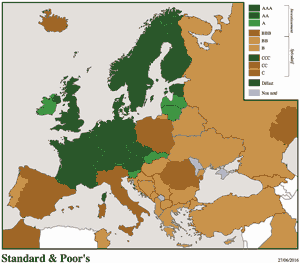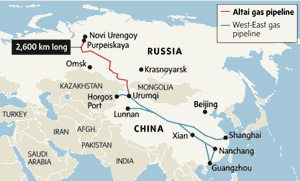>Top 7. Mechanism of US financial hegemony:
- Mechanism:
- >Top FSB (Financial Stability Board) published the scale of shadow banking: 61T(2008)increasedto67T (2012/11) and $75.2T (2014/10), which correspond to nearly half of the world financial assets.
- US-UK economy had grown by the expansion of shadow banking, though their manufacturing had been in slack.
- Non-regulated transactions; bond financial system such as MBS (mortgage backed security), Derivatives, MMF (Money Management Fund) , CDS (Credit Default Swap)
- >Top Excess dollar by QE has bought US G-bond, which increase shadow system, but will not cause inflation.
- This mechanism is not controlled by the government, but by Wall Street.
- Dodd-Frank Act. aims to minimize to affect to the real economy.
- Governing mechanism; to maximize the common interest, but pursue each optimization. (Market Fundamentalism)
- US Gov. has no strategy but continue QE and lose US$ supremacy.; World pursues soft landing of the collapse.
- Multipolar governance by G20.
- No more key currency than US$
- € can't be world key currency; ¥ once challenged, but now impossible.
- RMB might be possible.; Korea, Indonesia, Taiwan, Malaysia, Singapore, and Thailand tend to peg with RMB.; only Japan, Vietnam, and Mongol respect US$.
- China and Germany agreed trade settlement by Euro & RMB.
- 2016 AIIB (capital $100B) invested by 70 countries (excluding US and Japan); investment for OBOR (One Belt, One Road Initiative)
- Counter movement by EU and China:
- Research and warning by FSB; restricting speculations to prevent another Euro crisis (the attack by short sales, derivatives, CDS, etc.)
- Shadow transactions; 1/3 is in US, 2/3 in EU, etc.
- >Top Basel-III (Third Basel Accord):
- 2013/4: Global regulatory framework on bank capital adequacy, stress testing, and market liquidity risks; in response to the financial crisis in 2007-08. (Macro prudence)
- Switzerland considered Basel II was insufficient in 2007 crisis; USB suffered enormous impairment loss.
- Risk-based Capital ratio: GET1RWAs≤4.5%
- require banks Tier-1 capital 7%
(4.5% of CET1+ 2.5% AT1)
- 7% CET1 capital ratio from 2019 onwards
- CET=Common Equity Tier-1: common share+retained earnings
- RWA=Risk Weighted Asset: multiplied by relevant risk weight; more capital to cover riskier exposures.
- AT1=Additional Tier-1: capital instrument with no fixed maturity
- Tier-2: subordinated debt and general loan-loss reserves
- Leverage ratio: Tier-1 CapitalTotal exposure≤3%
- 2013 US Federal Reserve: announced leverage ratio 6% for 8 SIFI (Systemically important financial institution banks; too big to fail)
- Liquidity requirements:
LCR=High quality liquid assetsTotal net liquidity outflows over 30days≤100%
- LCR=Liquidity Coverage Ratio
- Profitability:
- Conventional bank business: ROE average 15%, risk continues until repayment; business scale 10TinUS,and30T worldwide.
- Leveraged financial business: ROE average 50-100%; risk can be sold in securitization. (Anglo-Saxon type finance); business scale $10.5T
- Housing loan: no loss of principal until insolvency 25% (AAA) and less than 5% (B)
- After 2007 crisis, even AAA housing loans could to sold.
- Creditor could not segment default loan, and execute security right.
- QE→down of fund raising cost→down of risk premium→more AAA bond→virtuous cycle of finance
- Once financial crisis happens →Evaluation rating will be meaningless→even CDS can not be covered.
- CDS securing 20% of ABS (asset backed securities); balance $60T。
- >Top Formerly FRB governs commercial banks, and SEC governs investment banks; now FRB governs both.
- 1988 SIV (Structured Investment Vehicle); special purpose off-balance fund to profit from credit spreads between short-term debt and long-term structured finance products (ABS).
- >Top History of Tax Haven (offshore financial center):
- 1967: Cayman Islands started tax haven.
- After the Nixon Shock in 1971 the Gold Standard was collapsed.
- Floating Exchange rate system is preferable for tax haven countries, who can secretly manipulate it.
- Since 1985, secret funds from African dictators have accumulated in Jergy Island in Channel Islands near Normandy. (Crown dependency)
- Nicholas Shaxson: researcher at Chatham House, wrote about sub-Saharan Africa oil ('Poisoned Wells') and Tax Havens ('treasure Islands'), criticizing US-UK global strategy.
- The maximum income tax in US is 39.6%, but actually top 400 billionaire averagely pay tax only 17%, without considering tax haven.
- Total assets of governments and corporations related African business are much larger than their related debts; Africa is surplus countries, but actually debt countries.
- Capital inflow to Greece at the time of G-Bond crisis is mostly from tax haven countries; Luxemburg, Virgin Islands, Cayman Islands, Ireland, etc.
- Unless enormous hidden funds deposited in tax haven, most of problems of US financial deficit, African poverty, and EU financial crisis could be explicit.
- The hidden funds (drastically increased since 1985) amounts more than half of the world financial assets, and 1/3 investment money of MNE.
- The Cayman Islands accumulated $1.9T fund, more than 3/4 of the world hedge fund.
- After WWII, most of British colonies were abolished, but made world small territories function as tax haven to absorb funds from US or others.
- Regarding tax haven operation, English bank supported, and UK Ministry of Finance opposed; UK Ministry of Foreign Affairs took ambiguous attitude.
- British series: Jarsey Island, Cayman Islands, Bermuda Islands, Ireland, Dubai, Singapore, Hong Kong.
- Continental series: Switzerland, Liechtenstein, Luxemburg, Monaco
- Others: Panama, Gabon, Ghana
- Object of tax haven:
- A function of the financial weapon:
- Enormous funds can outflow to the target of emerging country to expand the bubble there and make it collapse.
- Since 1990s, such actions caused economic crisis in Mexico, South-eastern countries, Korea, and marginal countries of EU.
- George Solos is an exceptionally took an action against the will of UK.
- Switzerland is an permanent neutral country which can collect money and functions as a tax haven; accepted funds from hostile countries to UK like Socialists, or Nazi Germany.; Since 1980s Switzerland which accepted Nazi fund was pressed to abandon such tax haven function, compensating to Jewish. (actually UK operates more tax haven bases than Switzerland.)
- During American Civil War (1861-65), UK funded Confederate Army via Bahama Island.
- Since 1930s, US mafia made money laundering from Florida to Cuba via Caribbean Islands. This Florida route was revived after the Cuban Revolution in 1959.
- US CIA intervened the Drug War in Latin America via the Florida money laundering route.
- The more money inflows tax haven countries, the more powerful the financial weapon grows.
- China recognizes function of Hong Kong, procuring or depositing their fund to perform political investment.
- >Top Tobin Tax:
- 1972; James Tobin; intended to put a penalty on short-term financial round-trip excursions into another currency.; 0.5% of the volume of the transaction.
- 2016/3; China drafted rules to impose a genuine currency transaction tax; initially 0% calculating potential revenue from different rate schemes.
- George Soros; it is true that it may discourage currency speculation but it would also reduce the liquidity of the market place.
- CTT (Currency Transaction Tax), or more general FTT (Financial Transaction Tax).
- Economists propose 0.01 -0.1% tax rates, considering existing transaction costs (spread) of multinational banks; to be used as UN costs.
- To perform the Tobin Tax, IMF needs to govern all International transactions; which means to deny the function of tax haven.
- US functions as the world government, and IMF as the world Ministry of Finance.
- >Top Scenario of collapse of the financial hegemony:
- QE→raise of stock prices→(apparent) economic growth without decreasing unemployment rate.
- Most of the general public (80% of US people) suspect the apparent economic growth.
- US-UK credit rating agencies (like Moody's Corp) needs either to devaluate US-UK G-bond or to discredit own evaluation.
- Distorted data:
- Not only credit rating but there are other distorted data by US Gov.
- Unemployment rate, Inflation rate, Crude oil prices (WTI index, West Texas Intermediate 6% of US crude oil production, or 1-2% of world at NYMEX, merged with CME, Chicago Mercantile Exchange in 2009), etc.
- Credibility of US$ depends on US hegemony, or vice versa.; Collapse of US-UK hegemony may cause murder-suicide of the world economy system.
|
7.
金融覇権の仕組み:
- メカニズム
- Basel-III 2017/12:
バーゼル銀行監督委員会
(
Basel-I 1988, Basel-II 2004)
2013より段階的適用,
2019より全面適用予定。
BIS規制の見直し:
- 自己資本比率強化:
Tier-1: 中核自己資本
普通株+内部留保
- 流動性比率:
- レバレッジ比率:
- 金融業界の利益率:
- 通常: 15% リスク有
- 証券化: 50-100%リスク無
- 格付け評価独占:
- 量的緩和→資金調達コスト低減→リスク・プレミアム低減→AAA債券増加→金融の好循環
- Tax Haven 租税回避地:
- 1967ケイマン諸島から
- 為替変動性は有利
- アフリカ援助横流し資金
- Chatham House研究員の良心?
- 米国租税上限対策
- 金融兵器庫
- 各国のQEが資金源
- 世界のHedge Fundの3/4
- Tax Havenの役割
- スイスの役割
- 米国南北戦争
- マフィア資金
- 麻薬資金・麻薬撲滅資金
- George Solos
- 中国資金
- Tobin Tax:
- 1972提唱 James Tobin
- CTTかFTTか
- Tobin Tax率
- IMFの役割
- 金融覇権崩壊のシナリオ
- QE→株価上昇
- →経済成長(失業率低下は伴わない
- 米英格付け会社の役割
- 歪められた統計指標
- 米ドルの信任は米国覇権に連動。
|

